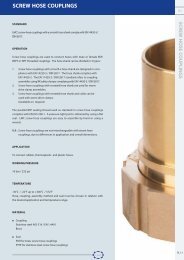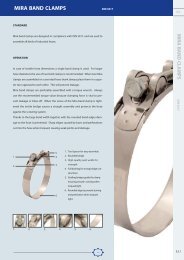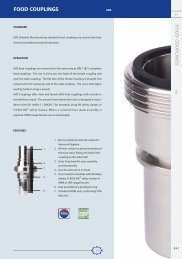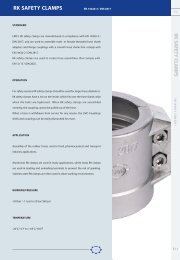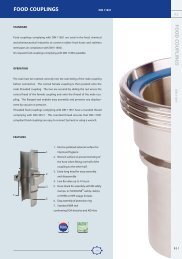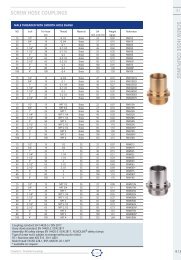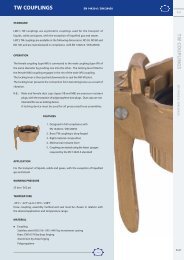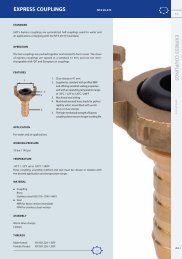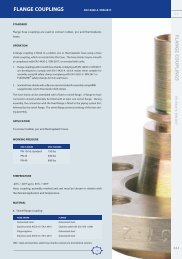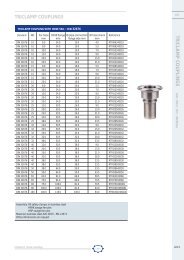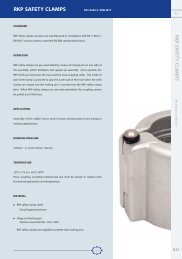Create successful ePaper yourself
Turn your PDF publications into a flip-book with our unique Google optimized e-Paper software.
<strong>CHEMALINE</strong> <strong>2000</strong><br />
IMPROVED PTFE LINING<br />
For highly corrosive chemicals <strong>LMC</strong>-<strong>Couplings</strong> offers his customers, industrial<br />
hose couplings with improved PTFE lining. This unique lining process is<br />
totally handled at <strong>LMC</strong>’s production facilities. Where conventional materials<br />
like brass, bronze, aluminum and even stainless steel are sometimes unsatisfactory<br />
in chemical resistance and/or working pressure, stainless steel<br />
couplings with <strong>CHEMALINE</strong> <strong>2000</strong> are often the perfect technical solution.<br />
Today we improved our PTFE lining process by using a NEW type of PTFE.<br />
Due to this improved PTFE the application possibilities of <strong>CHEMALINE</strong> <strong>2000</strong><br />
are wider than conventional PTFE.<br />
‘GK’ COUPLINGS<br />
1. Substantially lower deformation under load<br />
2. Lower permeation due to denser polymer structure and fewer voids<br />
3. FDA compliant<br />
4. Smoother surface finishes and excellent cleanability<br />
5. Higher transparency<br />
6. Higher barrier properties due to lower permeability<br />
PFA & PTFE<br />
The improved PTFE incorporates a perfluoropropyl vinyl ether modifier as<br />
used in the melt-processable fluorothermoplastic, PFA. Because the modifier<br />
content for the improved PTFE is much lower (less than 1%) than PFA, the<br />
molecular weight is reduced by one-fifth to that of conventional PTFE.<br />
By using the same modifier, the same property profile of PFA is used without<br />
losing the typical properties of conventional PTFE.<br />
Due to its lower permeability of the improved PTFE we guarantee a better<br />
corrosion resistance than conventional PTFE.<br />
SURFACE ROUGHNESS<br />
In the pharmaceutical and the bio industry the use of hose couplings with a<br />
low surface roughness is often required. The difference can clearly be spotted<br />
under a microscope at 50 x magnification.<br />
Conventional PTFE<br />
Improved PTFE<br />
- 3 -<br />
A.10.3



